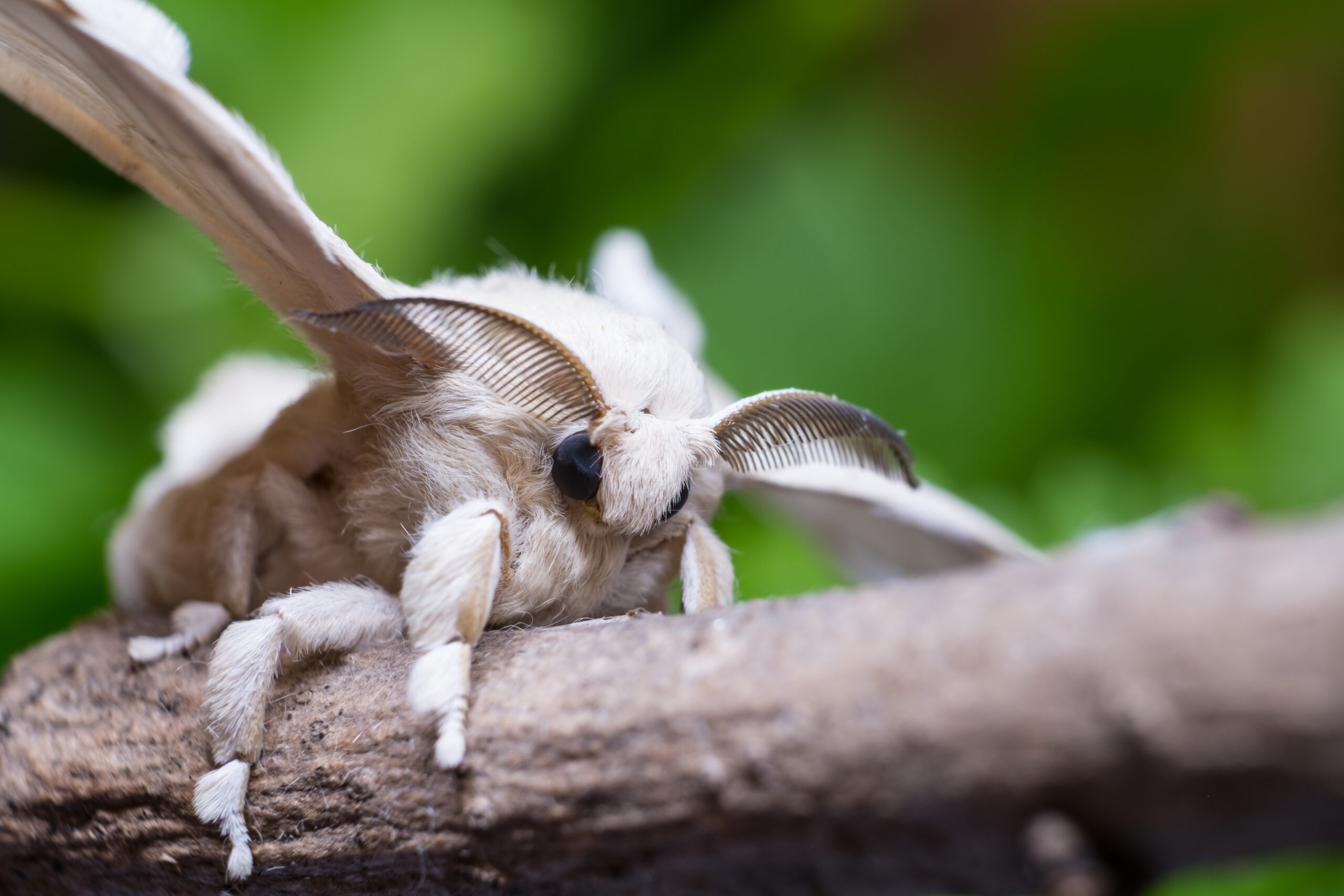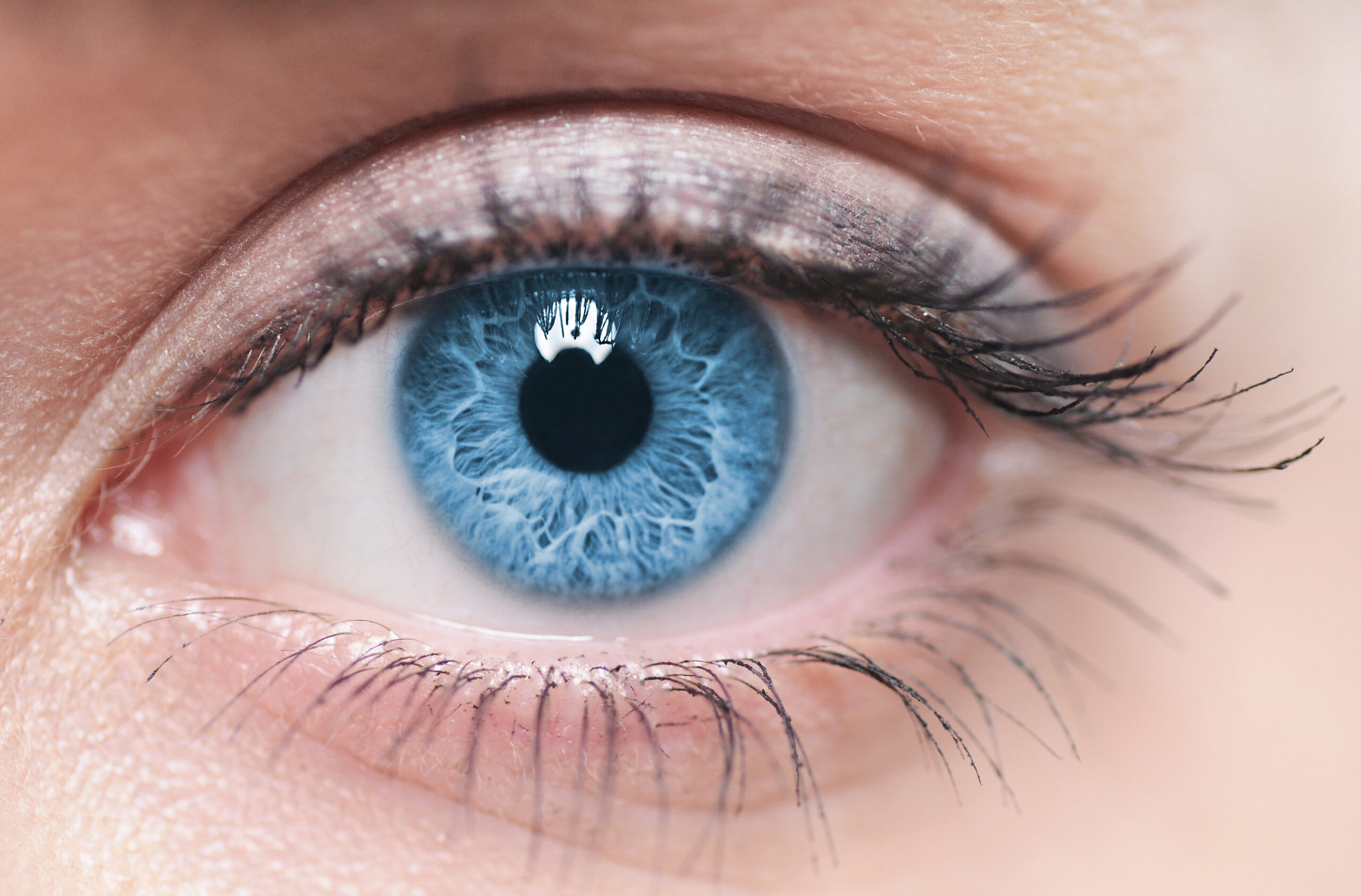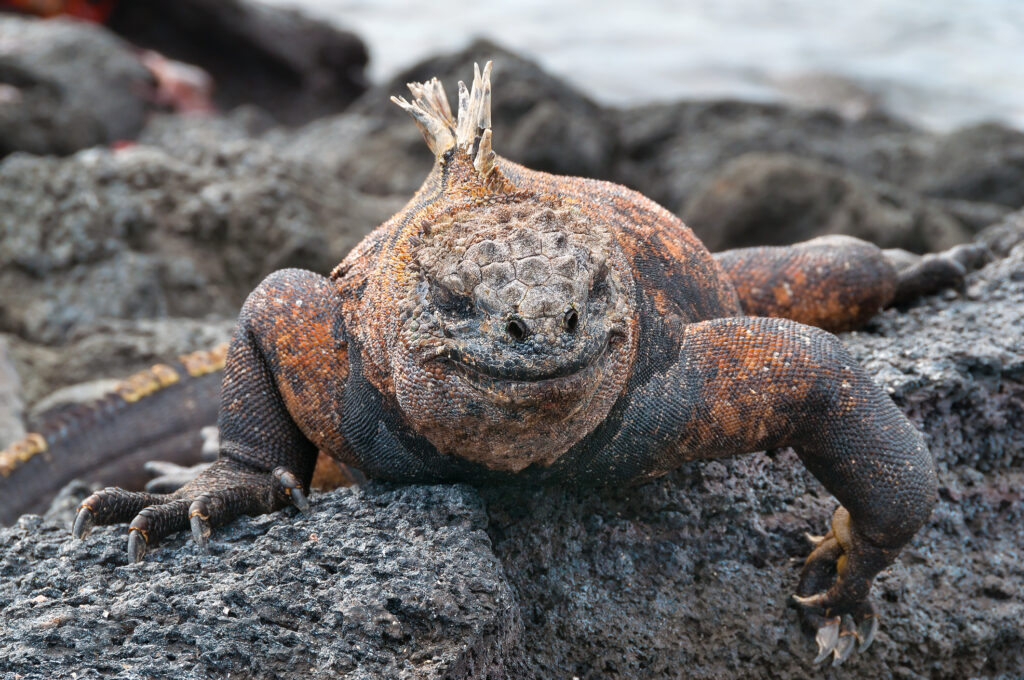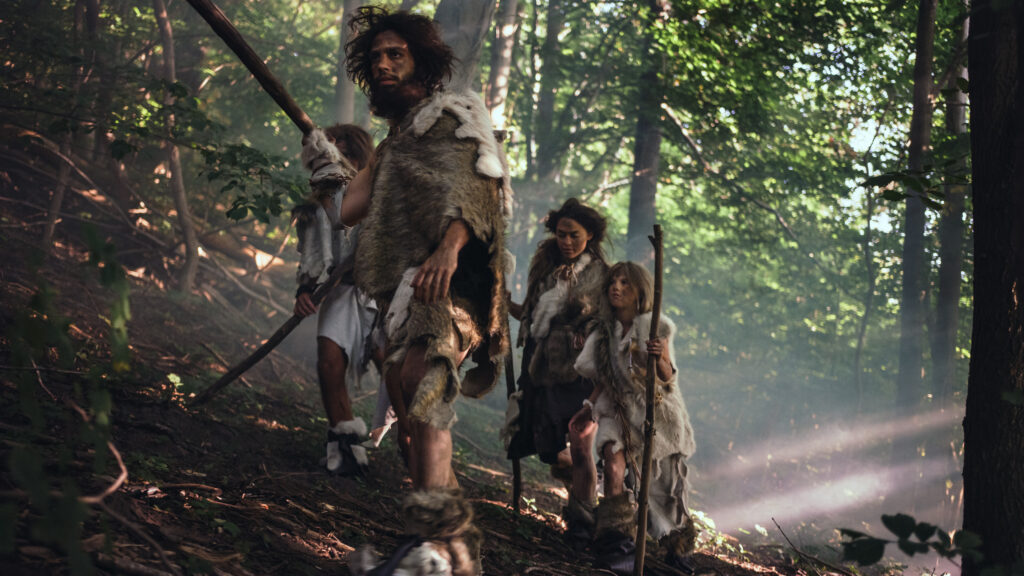Like many people, I didn’t become a Christian until I grew up and began asking questions deeper than, “If God is all-powerful, can he make a rock so big he can’t pick it up?”
Along the way, I found I had much to learn, and one day was sitting in the office of Father Trip Cormeny, chatting about deer hunting. For some reason, the issue of “evolution” came up, and I made a remark that I was amazed some people didn’t believe in it.
“I don’t,” he said.
“Please tell me you aren’t a creationist,” I said. “That the universe was constructed in seven days.”
“No,” he said, “but I certainly don’t believe in Darwinism. His premise is that mutations occur, and the beneficial mutations are then passed along, causing macro-changes that eventually lead to you and I sitting here. If you analyze strict Darwinism, you’ll see it can’t be argued to a logical conclusion.”
“Please give me an example,” I requested.
“Okay,” he said, “consider the eye. Consider the parts: Sclera, iris, lens, cornea, retina, blood supply, optic nerve … without one of them, the eye doesn’t work.”
“Right.”
“One part fails, and it’s useless. They all depend on each other. And remember, that evolutionary process had to occur in concert with evolving a brain.”
“Right.”
(Click to view)
(VIA: GETTY IMAGES)
“How do you evolve an eye? If none of the parts work without each other, how did they all come together? If an organism had a mutation that resulted in the first cell of a retina, why would it be passed along? It’s useless without the other parts. Plus, you need 130,000,000 cells just to form a working human retina. How are billions of cells going to evolve into a complete eye.”
“But …”
“And how do you evolve an entire animal with internal organs that depend on each other to function? How did that all fall into place?”
“But …”
“Weird idea, huh?”
“Dude — you’re not supposed to mess with my worldview during a conversation about deer hunting.”
“Read Darwin on Trial,” he said. “Think about it. Whether it’s the Christian God, or another god, or an intelligent designer, something supernatural made all this happen. I used to give Darwinism wide berth, because it was always referred to as a theory … and what’s the point of pushing back on a theory? But in the past 50 years, we’ve seen the rise of Neo-Darwinism, whose adherents view it as factual settled science — and attack anyone who has a different view. Personally, I believe our God guided the whole process, and filled in the holes that are impossible to explain. Analyze the evidence, and decide for yourself.”
That conversation got me thinking: There are millions of examples of evolution occurring every day at the micro-level — everyone knows that — but what of the macro-level?

***
Then, one day, I was hit by a revelation that convinced me intelligent design had to be true: How do you “evolve” a silk moth?
Let’s review a simplistic Darwinian explanation: A caterpillar is born one day with a silk gland under its mouth. That gets passed along a few billion generations. One day, a tiny bit of silk starts to emerge from the gland. It’s not beneficial, but it gets passed along a few billion generations, and with each generation — for some un-Darwinian reason — the amount of the non-beneficial silk it can generate increases.
One day, when the gland can produce 4,000 feet of continuous silk, the caterpillar thinks, “Well, hell — I’ll just wrap myself up in this … maybe Netflix and chill.”
Help me with this next part: The caterpillar then disintegrates all of its tissue, except for the marginal discs; those discs use the protein rich soup that was once the caterpillar to fuel the cell division to create wings, antennae, legs, eyes, and genitals of a silk moth. In other words, the caterpillar melts itself, and feeds on itself, while turning into a different animal.
That’s where I need help from a strict Darwinist. How, in the first few billion generations, did the caterpillar melt itself … and pass along that wonderful talent? Did the whole process Darwinically happen on the first try? If so, who did the moth pass along this cool new mutation to? He’s a moth now … the only moth in the world. Who is that moth going to mate with? When the next one comes along and they do mate, why don’t they give birth to moths, instead of melty things?
Did it Darwinically happen to every caterpillar at the same time? After 100 billion generations, everything was just right — and everyone melted into a moth at the same time?
It can’t happen … not the way Darwin said it did.
Jumping around a bit, mother nature has virtually every animal categorized as predator and prey. Why would an animal pass along the beneficial genes that come with being eaten? If I’m a one-cell organism destined to be mammal, you can bet your ass I’m going to be evolving as hard as I can to be a lion, not an impala.
Do you know how whales sleep? They have a left brain and right brain, and one sleeps while the other one runs the show … and the eye on the side of the awake brain stays open to look for trouble. What happened to the whales before that got the two-brain thing sorted out? Were they born, then swam around until they were exhausted from sleep deprivation, and drowned? That’s not a very effective way to pass along your genes.
Certainly among the most helpless creatures on the planet are sloths and manatees. What characteristics do they possess that could be considered “beneficial?”
How does Darwin’s theory account for the evolution of a land animal that a) possesses a top speed of 15-feet per minute b) no ability to ward off prey c) survives by living an almost motionless life in the trees … but has to climb down once a week to relieve itself, thus making itself noticeable to predators?
The lovable manatee doesn’t fair much better; it’s only defense is to hang around in shallow waters, where some of the larger predators can’t go. That would be terrific, if they didn’t also migrate, which takes them directly into the path of alligators, crocodiles, sharks, and Orcas.
Lotta strings to tie together in the old Duder’s head.
Once down the rabbit hole, I began to ponder early life. That would be dinosaurs, of course — which fossil records demonstrate obviously ruled the earth.
(Click to view)
(VIA: GETTY IMAGES)
According to Darwinism, that came about because some single-cell organisms initially evolved into fish. At some point, one of the fish was swimming along the shore, and noticed land … clearly an untapped resource of fun things to do. He went and told his friends.
Over a billion generations, all the fishes stretched and strained to develop legs, which did them no good because they were, well, fish. However, all that non-Darwinian stuff happened, and one day a fish had legs that could propel him … so naturally, he held his breath and crawled up onto land, glanced about, and went back into the ocean. He told all his friends about all the wicked cool stuff he saw.
Unfortunately, they were stuck with gills, and couldn’t breathe air. But as they said in Jurassic Park, “nature always finds a way,” and the fishes lust for dry land caused them to develop gill-ish lungs. Sadly, the lungs caused the first 100 million generations to drown, but they kept passing along that beneficial mutation, and one day a fish found he could breathe both water and air — so he crawled up onto land.
Through the process of natural selection, the fish went on to become dinosaurs, and early dinosaurs drew straws to see who got to be a predator and who was stuck with the beneficial life of being prey. The prey discussed it, and decided they didn’t believe in Darwinism.
One dinosaur was warm blooded, and thus couldn’t join in any dinosaur games. In his depression, he grew hollow bones and wings, and when he could take it no more threw himself off a cliff. Fortunately, he found he could fly.
One day a meteor struck the earth and killed all the dinosaurs.
Did Darwin’s theory have to start over? It’s kind of vague, but the massive dinosaurs were dead, so those left alive did the best they could: Some stayed cold-blooded, while other became warm-blooded mammals that would eventually become lions and tigers and bears (oh my).
Darwin wrote that if he was wrong, it would be proven through fossil records.
Then, oops, the Cambria Explosion happened, and in a period of ten million years — a blink of the eye in evolutionary terms — the earth was flooded with species that evolutionary biologists agree have no logical “evolutionary ancestors” from which to evolve. What gives?
Well, many scientists are honest, and renowned evolutionary paleontologist Stephen J. Gould admitted this fact: The extreme rarity of transitional forms in the fossil record persists as the trade secret of paleontology. The evolutionary trees that adorn our textbooks have data only at the tips and nodes of their branches; the rest is inference, however reasonable, not the evidence of fossils.
Oh, sure, Mr. Science denier, you can write this piece because Darwin isn’t around to defend himself. Well, in fact, he is — he wrote, “during these vast, yet quite unknown, periods of time, the world swarmed with living creatures. To the question why we do not find records of these vast primordial periods, I can give no satisfactory answer … but the difficulty of understanding the absence of vast piles of fossiliferous strata, which on my theory no doubt were somewhere accumulated before the Silurian epoch, is very great.”
Huh. So the “settled science” that Darwin’s theory is no longer theory, but fact, was disputed by the man who developed the theory.
Can I say the Christian God is the force behind all this? Of course not. But consider digging into the realities of Darwinism yourself – without taking the word of a Neo-Darwinist who insist it’s fact – not a theory. Look for yourself: All signs point to an intelligent designer.
Consider this: Evolution insists we believe that a hairless entity — one that was physically weak, had no speed, no teeth or claws, no natural defenses to the cold weather, and intelligence of a Congressional sub-committee, went on to become modern man, living at the top of the food chain and able to put a man on the moon.
(Click to view)
(VIA: GETTY IMAGES)
We’re told this is because man’s brain evolved, and they learned to hunt in teams. Then harnessed fire and figured out how to farm.
Okay, but what about the millions of years between early man and team-hunter/ grower man? Early man would have been, literally, the weakest animal on the planet. Why did early man get to keep breeding and evolving his brain – and then develop such an advanced state of “consciousness?” Why is a human baby a completely helpless burden until about age six? Is that beneficial?
Perhaps you believe it’s because we evolved from apes, and their kids are pretty useless, too. Right, but apes can climb trees with their kids on their back. They are incredibly strong — a mere chimpanzee can tear a man’s limb, and a spider monkey can kill a man. Their senses are many times stronger than ours. Why would early man evolve away from those beneficial characteristics and into the weaklings we are?
Using Darwin’s theory, it doesn’t make sense.
Don’t get me wrong — I don’t believe modern animals appeared out of thin air. My guess is evolution is close to the way it happened. But I believe an intelligent designer had to guide it, with a long-term plan in mind.
It’s no big deal to me whether you agree or disagree. I find it a fun topic to ponder. Look around at the majesty of creation, and ask yourself, “Could this just happen randomly?” If it seems even a bit unlikely, try and identify the things that seem to be the most impossible.
A few quotes on the argument for Intelligent Design:
“The first gulp from the glass of natural sciences will turn you into an atheist, but at the bottom of the glass God is waiting for you.”
Werner Heisenberg, who was awarded the 1932 Nobel Prize in Physics for the creation of quantum mechanics.
“I have looked into most philosophical systems and I have seen that none will work without God. Science is incompetent to reason upon the creation of matter itself out of nothing. We have reached the utmost limit of our thinking faculties when we have admitted that because matter cannot be eternal and self-existent it must have been created.”
—Physicist and mathematician James Clerk Maxwell, who is credited with formulating classical electromagnetic theory, and whose contributions to science are considered to be of the same magnitude to those of Einstein and Newton.
“One way to learn the mind of the Creator is to study His creation. We must pay God the compliment of studying His work of art and this should apply to all realms of human thought. A refusal to use our intelligence honestly is an act of contempt for Him who gave us that intelligence.”
— Physicist Ernest Walton, who won the 1951 Nobel Prize in Physics for his “atom smashing” experiments done at Cambridge University in the early 1930s, and so became the first person in history to artificially split the atom.
“The gift of mental power comes from God, Divine Being, and if we concentrate our minds on that truth, we become in tune with this great power.”
–Nikola Tesla, the inventor and futurist scientist known for numerous inventions, but best known for his contributions to the design of the modern alternating current (AC) electrical supply system. Tesla was the winner of: Edison Medal (1916); Elliott Cresson Medal (1894); John Scott Medal (1934)
***
ABOUT THE AUTHOR…
(Via: Provided)
Prioleau Alexander is a freelance writer, focusing mostly on politics and non-fiction humor. He is the author of two books: ‘You Want Fries With That?’ and ‘Dispatches Along the Way.’ Both are available on Amazon. He hopes to have another title published soon, but that would require his agent actually doing his job, so it may be awhile.
***
WANNA SOUND OFF?
Got something you’d like to say in response to one of our articles? Or an issue you’d like to address proactively? We have an open microphone policy! Submit your letter to the editor (or guest column) via email HERE. Got a tip for a story? CLICK HERE. Got a technical question or a glitch to report? CLICK HERE.





